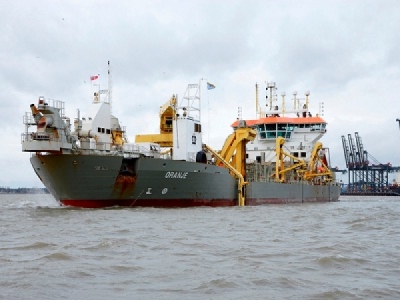
Posted on May 22, 2017
The European Commission has widened the scope of its rules on public investment in ports and airports to encourage infrastructure development.
The Commission has extended the 2014 General Block Exemption Regulation (GBER) to cover ports and regional airports, culture and ‘outermost regions’. Under the EU state aid rules member states must normally notify the Commission of state aid plans and wait for approval before the measure can be implemented. The GBER exempts some aid measures from this obligation.
Under the new rules EU countries can make public investments in regional airports handling up to three million passengers a year without prior approval. There are 420 airports of this size across the EU, accounting for about 13% of air traffic, the Commission said.
Aid should not, however, be granted to airports that are within 100km or 60 minutes travel time of another airport. The funded infrastructure must not be larger than the expected demand and must be fully used, the Commission said.
The aid must also not go beyond the “funding gap” needed to trigger the investment, and there are limits to the percentage of the investment costs that can be subsidised based on the size of the airport and whether it is in a remote region, the Commission said.
Public authorities will be allowed to cover the operating costs of small airports, defined as those handling up to 200,000 passengers a year. These account for almost half of all airports in the EU and are important to connectivity, but investment in them is unlikely to distort competition as they only account for 0.75% of traffic, the Commission said.
Member states can now invest up to €150 million in sea ports and up to €50 million in inland ports without prior approval, and public authorities can cover the costs of dredging in ports and access waterways.
The amount that can be invested will depend on whether the port is inland or maritime, and whether it is included in a “core network corridor”, the Commission said. As with airports, the aid must also not go beyond the “funding gap” needed to trigger the investment and only a certain percentage of investment costs can be subsidised, depending on the size, nature and location of the port.
Only investment costs are eligible for aid, except in dredging projects where both investment and maintenance costs can be included.
Any concessions to third parties for the construction, upgrade, operation or rent of port infrastructures “must be assigned on a competitive, transparent, non-discriminatory and unconditional basis”, the Commission said.
The Commission will now only look at bigger state aid cases in culture projects and for multi-purpose sport arenas, it said, while it has made it easier for public authorities to compensate companies for the additional costs they face when operating in the EU’s outermost regions.
Start-up aid is now allowed for small companies up to five years from their registration. Start-ups that were considered as “companies in difficulty” previously could not benefit from start-up aid. However, the Commission said it recognised that “innovative start-ups or start-ups in research and development intensive sectors often incur losses in their first years before they can sell their products, even though they can in fact be dynamic and growing”.
Commissioner Margrethe Vestager, in charge of competition policy, said: “We want to ensure that companies can compete on equal terms in the single market – and we want to do so in the most efficient way. EU state aid rules are the same for all member states. Today’s changes will save them time and trouble when investing in ports and airports, culture and the EU’s outermost regions, whilst preserving competition. They also allow the Commission to focus attention on state aid measures that have the biggest impact on competition in the single market, to be ‘big on big things and small on small things’ to the benefit of all European citizens”.
The Commission asked for feedback on the proposed changes in March 2016.
State aid expert Caroline Ramsay of Pinsent Masons, the law firm behind Out-Law.com said: “The Commission’s decision to widen the application of the GBER to airports and ports is to be welcomed. This provides much needed clarity and certainty to both operators and to government as to what aid can be provided in a lawful manner. The changes also allow for operating support to be provided in certain circumstances to smaller airport and port operators, which will help them to provide vital services to their local communities.”
Source: Out-Law.com





